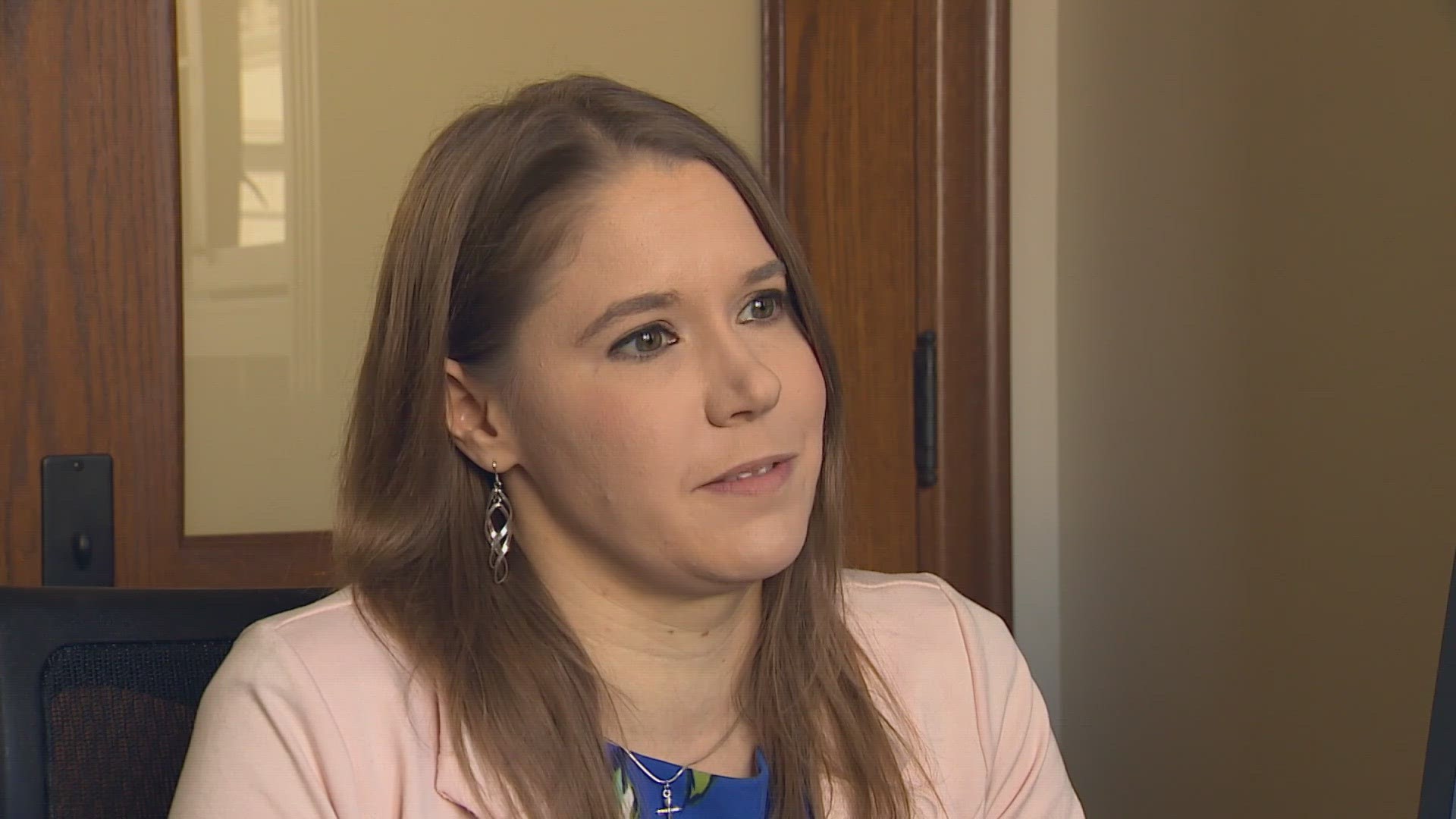OLYMPIA, Wash. — In public hearings on legislative proposals, lawmakers are used to hearing from those who say the system is broken. But rarely does that criticism come from their peers.
Rep. Lauren Davis (D-Shoreline) told state senators that getting state protection from a stalker was difficult.
“I was living in a constant state of terror,” said Davis when describing the seven months following a break-up when she lived with friends in an attempt to hide from her ex-boyfriend.
Davis said she struggled to get the justice system to seize her former boyfriend’s 17 weapons, had a hard time finding a lawyer who was familiar with the system, and when she did, it cost her $25,000.
“Nearly half of my legislative salary was spent petitioning a court for the right to not be murdered,” said Davis while testifying in favor of House Bill 1715.
"I am white. I speak English. I am educated. I am a sitting lawmaker and I had to crawl over broken glass to save my own life in this state,” said Davis.
The bill would offer legal aid to low-income domestic violence survivors, establish a statewide domestic violence prosecutor to help smaller counties prosecute domestic violence and stalking cases, and would expand the Tiffany Hill Act. That 2020 law, named after a Clark County mother who was killed by her estranged husband, requires someone identified as a stalker to have to wear a GPS device that alerts a victim and police if the stalker is closer to the victim than they are allowed to be.
Davis voted in favor of the law but said getting protection from it was not as easy as she hoped.
She learned most counties in the state did not offer the GPS device.
House Bill 1715 would establish statewide standards for the devices. Davis said she hoped that would offer protection to victims anywhere in the state.
“I personally benefitted from that technology and I believe it saved my life,” said Davis.
The bill passed out of the House 69-25. On Thursday, the legislation had its first hearing before the Senate.

